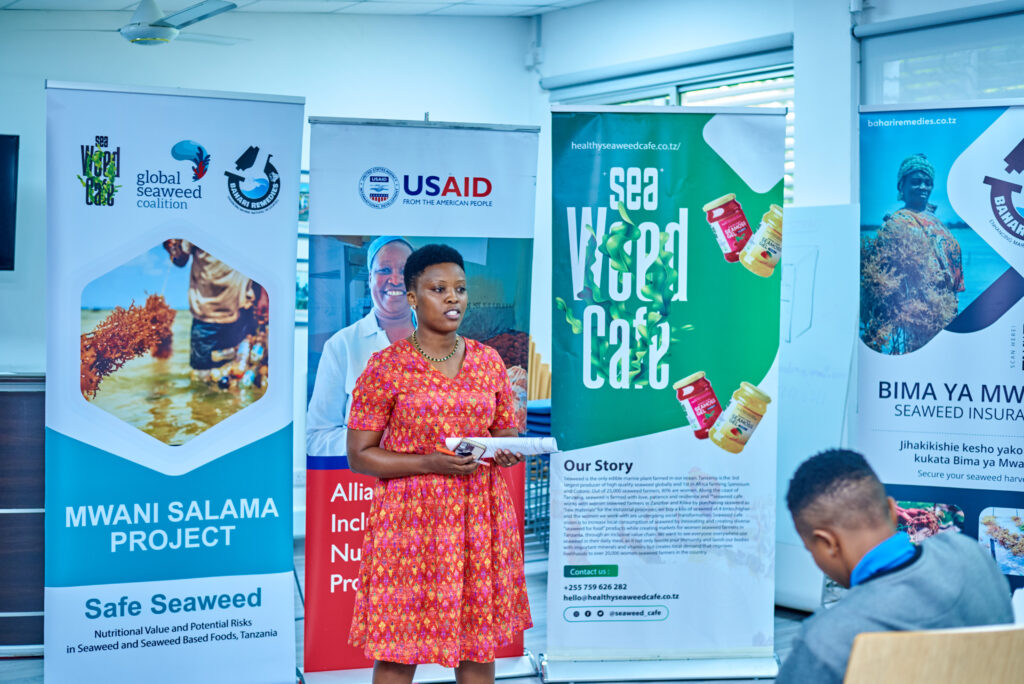
Safe Seaweed – Assessment of Nutritional Value and Potential Risks in Seaweed and Seaweed-based Foods
Project Details
- Client: Seaweed Cafe
- Location: Dar es Salaam, Tanzania
- Duration: January 2023 – July 2023
Project Overview
Bahari Remedies was consulted by Healthy Seaweed Co. Limited, Tanzania’s first seaweed-for-food certified brand to conduct a thorough assessment of the nutritional value and safety risks of locally produced seaweed and seaweed-based foods.The project, implemented under the “Mwani Salama” initiative funded by the Global Seaweed Coalition, aimed to generate scientific evidence on nutritional composition, microbial safety, and heavy metals content, and to build capacity among processors and stakeholders to improve product safety and market competitiveness.
Key Activities
- Conducted sampling and laboratory analysis of 20 seaweed products, including gels, powders, and dried and wet seaweed, across multiple locations (Dar es Salaam, Bagamoyo, Zanzibar, Songo Songo, and Pemba).
- Analyzed micro- and macro-nutrients (iron, magnesium, potassium, calcium, sodium, zinc, iodine) and heavy metals (arsenic, cadmium).
- Performed microbial shelf-life experiments over 36 days, measuring bacterial, yeast, and mold growth.
- Delivered in-house training to Seaweed Café staff and facilitated two days workshops for 22 stakeholders from government, academia, and the private sector.
Outcomes & Impact
- Generated detailed nutrient profiles for seaweed products showing significant levels of essential minerals, with some exceeding recommended daily intake (notably iron and potassium in dried products).
- Identified traces of arsenic in certain dried seaweed products, providing vital information for safety standards.
- Determined the shelf life of different formulations, highlighting microbiological risks and appropriate handling practices.
- Strengthened knowledge and skills among processors and stakeholders to improve product safety and quality.
- Laid the groundwork for establishing Tanzania Bureau of Standards (TBS) guidelines for seaweed gel products.
Areas of Expertise
- Nutritional and heavy metal profiling of food products
- Food safety and microbiological shelf-life testing
- Facilitating high-level stakeholder workshops
- Stakeholder engagement with academia, government, and industry
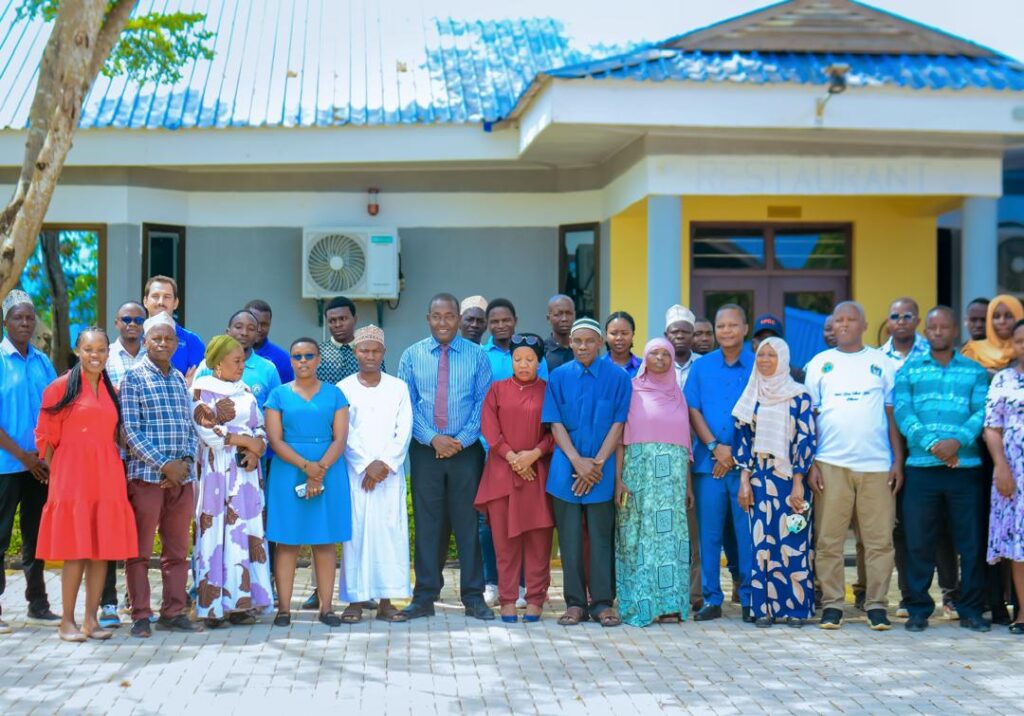
Review and Development of the 10-Year General Management Plan (GMP) for the Mnazi Bay – Ruvuma Estuary Marine Park (MBREMP)
Project Details
- Client: Chemonics International under USAID Heshimu Bahari
- Location: Mtwara Region, Southern Tanzania
- Duration: August 2024 – February 2025
Project Overview
Bahari Remedies was contracted to lead the review and development of a comprehensive General Management Plan (GMP) for the Mnazi Bay–Ruvuma Estuary Marine Park (MBREMP), Tanzania’s second marine park covering approximately 650 km² of critical marine and coastal habitats. This assignment aimed to produce an updated 10-year strategic framework to guide biodiversity conservation, sustainable use of marine resources, and equitable community participation.
Service Provided
- Reviewed the 2011 GMP and analyzed its achievements and limitations. Conducted an extensive baseline assessment, including ecological surveys, socio-economic studies, and management effectiveness analysis.
- Led participatory stakeholder consultations with 23 villages, government agencies, NGOs, fishers, and tourism operators.
- Developed a revised zoning scheme and management objectives aligned with national laws and policies.
- Developed the Draft and Final GMP outlining clear objectives, strategies, and zoning recommendations
- Designed a monitoring and evaluation framework with clear indicators for adaptive management.
- Produced a simplified Kiswahili version of the GMP to support community awareness.
Outcomes & Impact
- Delivered a 10-year GMP to strengthen MBREMP governance, enforcement, and ecological monitoring.
- Introduced strategies for sustainable funding mechanisms and tourism development.
- Proposed a collaborative management model involving local communities in decision-making and benefit-sharing.
- Enhanced alignment with Tanzania’s Marine Parks and Reserves Act and international conservation standards.
Areas of Expertise
- Marine protected area planning and management
- Ecological and socio-economic baseline assessments
- Stakeholder engagement and participatory consultation
- Policy and legal framework alignment
- Zoning and spatial planning for marine conservation
- Development of monitoring, evaluation, and learning systems
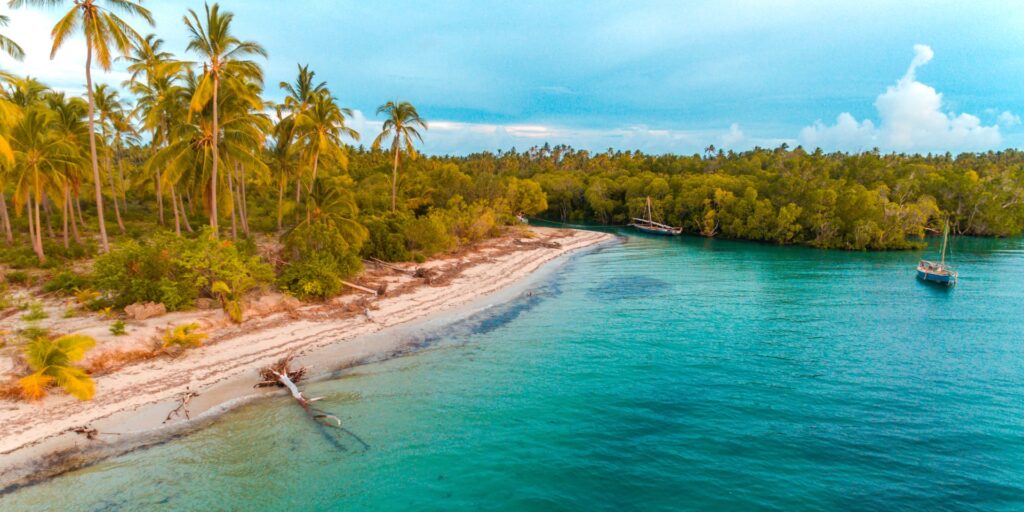
Development of the 10-Year General Management Plan for Mafia Island Marine Reserves
Project Details
- Client: Chemonics International under USAID Heshimu Bahari
- Location: Mafia District, Coast Region, Tanzania
- Duration: August 2024 – February 2025
Project Overview
Bahari Remedies was engaged to develop a comprehensive 10-Year General Management Plan (GMP) for the Mafia Island Marine Reserves (MIMR), comprising Mbarakuni, Shungimbili, and Nyororo Marine Reserves. The project aimed to create a strategic roadmap for the effective management and conservation of these critical marine ecosystems, while promoting sustainable livelihoods for adjacent communities.
Service Provided
- Conducted detailed literature review on national and international marine conservation frameworks.
- Led field assessments covering ecological, socio-economic, and management dimensions.
- Facilitated extensive stakeholder consultations including community leaders, fishers, tourism operators, NGOs, and government bodies.
- Prepared a Baseline Assessment Report highlighting key challenges such as illegal fishing, boundary ambiguities, and socio-economic pressures.
- Developed the Draft and Final GMP outlining clear objectives, strategies, zoning recommendations, and monitoring frameworks.
- Produced a simplified Kiswahili version of the GMP to support community awareness.
Outcomes & Impact
- Provided the first comprehensive management framework since gazettement of the reserves in 2007.
- Established a collaborative governance approach involving communities, local authorities, and conservation stakeholders.
- Recommended actionable strategies to improve enforcement, enhance ecological monitoring, and promote sustainable funding models.
- Supported alignment with Tanzania’s National Climate Change Adaptation Action Plan and Blue Economy Strategy.
Areas of Expertise
- Marine protected area management planning
- Participatory stakeholder engagement and consultation facilitation
- Socio-economic and ecological baseline assessments
- Climate adaptation strategy development
- Policy alignment and regulatory analysis
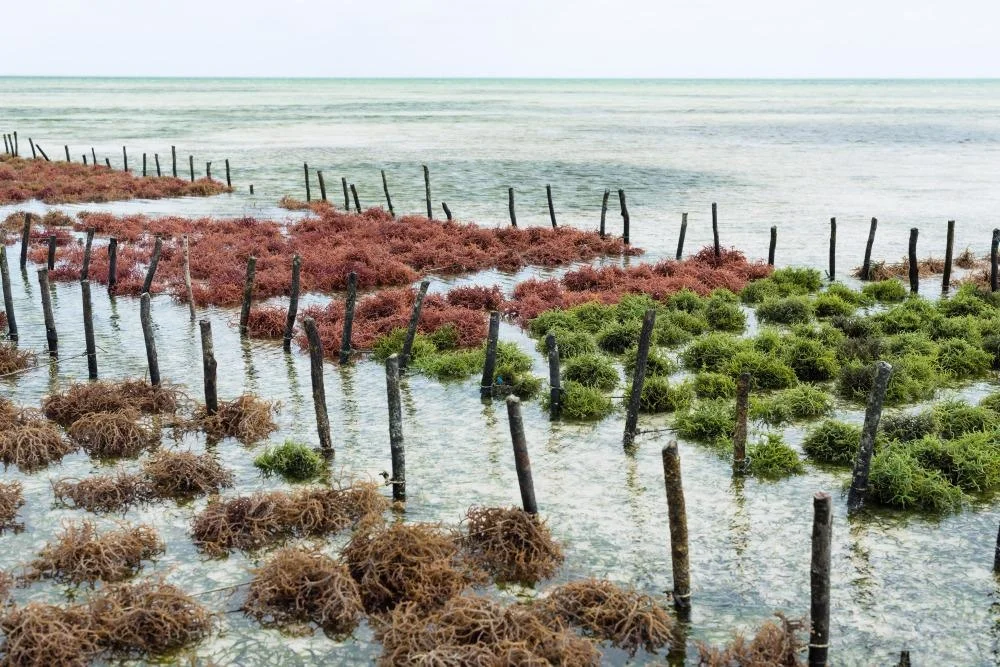
Enhancing Safety and Nutritional Profiling of Tanzanian Seaweed-Based Products: A Food & Cosmetic Industry Assessment
Context:
In recent years, the Tanzanian seaweed industry has witnessed rapid growth, particularly in value-added sectors such as food supplements and cosmetic products. However, with rising global demand comes the critical need to ensure that seaweed-derived goods meet strict nutritional and safety standards. This consultancy, commissioned by Tanzanite Supermos, aimed to bridge the gap in scientific data regarding the nutritional composition and potential risks associated with local seaweed-based products. The initiative reflects Bahari Remedies’ commitment to evidence-based natural product development rooted in marine science and health.
Core Project Details
- Implementing company: Bahari Remedies
- Client/Partner: Tanzanite Supermos
- Funding Type: Private Consultancy
- Location: Tanzania (Product sourcing from coastal areas; analysis in Bahari Remedies’ laboratory facilities)
Strategic Objectives and Components
- Nutritional Composition Analysis
Seaweed as a Superfood
The project included comprehensive laboratory analysis of Tanzanian seaweed species, focusing on key macro- and micronutrients. These included protein, dietary fiber, essential fatty acids, vitamins A and C, and minerals such as calcium, iron, and magnesium. The data was benchmarked against both local dietary guidelines and international nutritional references. - Safety and Risk Assessment
Protecting Consumer Health
The initiative conducted rigorous testing for harmful contaminants, particularly heavy metals like arsenic, cadmium, and mercury. Seaweed samples and derivative products (foods and cosmetics) were evaluated to ensure safety compliance, with results confirming that all tested products fell within safe consumption thresholds. - Regulatory & Industry Support
Towards Standards & Compliance
Recognizing the lack of existing TBS (Tanzania Bureau of Standards) guidelines specific to seaweed gel, Bahari Remedies employed international protocols for safety benchmarking. The consultancy produced actionable research recommendations to inform future standard-setting in Tanzania.
Expected Outcomes and Impact
- Safe & Compliant Products:
All analysed samples met international safety requirements, ensuring market-ready seaweed-based goods that consumers can tr - Enhanced Nutritional Insight:
Seaweed products showed high levels of essential minerals and dietary fiber, reinforcing their role as valuable additions to local diets and wellness industries. - Consumer Confidence & Public Health:
By identifying nutrient-rich formulations and confirming safety standards, the project supports health-focused consumption and informed consumer choices. - Sectoral Advancement:
The consultancy delivered foundational data to guide product development and regulatory frameworks in Tanzania’s emerging seaweed industry.
Broader Significance
This project demonstrates the importance of robust scientific evaluation in unlocking the full economic and nutritional potential of marine resources. By combining nutritional science, public health standards, and regulatory foresight, Bahari Remedies is contributing to a future where seaweed-based innovations are safe, standardized, and globally competitive.
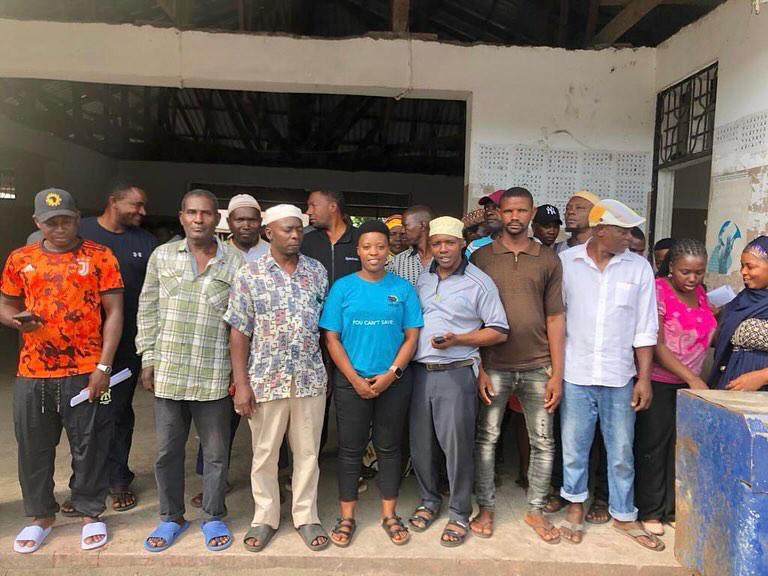
Community Approach to Fisheries Resilience in Kunduchi Coastal Fishing Communities
Project Details
- Partner: Sustainable Ocean Alliance (SOA)
- Location: Kunduchi, Dar es Salaam, Tanzania
- Duration: June 2023 – June 2024
Project Overview
Bahari Remedies implemented this project in collaboration with the Sustainable Ocean Alliance to strengthen the climate resilience and sustainability of small-scale fisheries in Kunduchi, a critical livelihood sector threatened by overfishing and climate change. The project combined participatory research, training, and community engagement to promote sustainable fishing practices, enhance fishing communities’ resilience to climate change and empower fishers to adopt alternative sources of livelihoods.
Key Activities
- Conducted baseline assessments of fish species, fishing practices, and climate change impacts.
- Mapped stakeholders and engaged 50 community representatives, fishers, and local authorities.
- Organized a community workshop on sustainable fishing methods.
- Conducted training on alternative sources of income as an adaptation strategy.
- Raised awareness on the impacts of climate change and the need for adaptation measures such as mangrove replanting and coral reef restoration.
Outcomes & Impact
- Reached over 150 fishers and community members with project activities.
- Increased awareness of climate change impacts, with 93% of participants recognizing changes in fish stocks and weather patterns.
- Enhanced knowledge of sustainable fishing, with participants committing to act as ambassadors against illegal practices.
- Strengthened women’s participation, with 41% of participants being women engaged in fisheries activities and adaptive strategies.
Areas of Expertise
- Community-based climate resilience planning
- Participatory training and capacity building
- Gender and social inclusion in fisheries
- Sustainable fishing practices promotion
- Stakeholder mapping and engagement